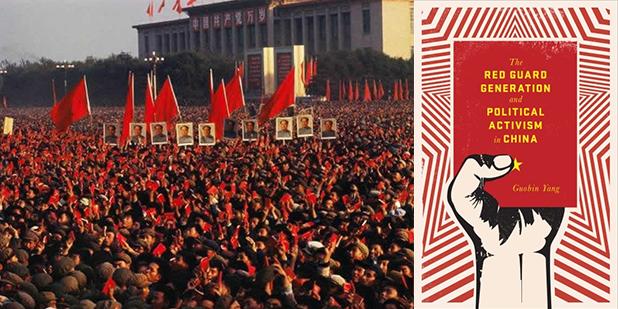Happy Lunar New Year from the USC US-China Institute!
The Red Guard Generation and Political Activism in China
Please join the USC U.S.-China Institute for a book talk by Guobin Yang. The first part of the book offers a new explanation of factional violence in the Red Guard movement and the second part of the book chronicles the de-sacralization of that revolutionary culture throughout the 1970s and the rise of a new wave of protest that inaugurated the democratic movements of the reform era.
Where

Click here for a video of the presentation.
About the Book
Raised to be "flowers of the nation," the first generation born after the founding of the People's Republic of China was united in its political outlook and at first embraced the Cultural Revolution of 1966, but then split into warring factions. Investigating the causes of this fracture, Guobin Yang argues that Chinese youth engaged in an imaginary revolution from 1966 to 1968, enacting a political mythology that encouraged violence as a way to prove one's revolutionary credentials. This same competitive dynamic would later turn the Red Guard against the communist government.
Throughout the 1970s, the majority of Red Guard youth were sent to work in rural villages, where they developed an appreciation for the values of ordinary life. From this experience, an underground cultural movement was born. Rejecting idolatry, these relocated revolutionaries developed a new form of resistance that signaled a new era of enlightenment, culminating in the Democracy Wall movement of the late 1970s and the Tiananmen protest of 1989. Yang's final chapter on the politics of history and memory argues that contemporary memories of the Cultural Revolution are factionalized along these lines of political division, formed fifty years before.
About the Author
 Guobin Yang is a Professor of Communication and Sociology at the Annenberg School for Communication and Department of Sociology at the University of Pennsylvania. His books include The Red Guard Generation and Political Activism in China (2016), The Power of the Internet in China: Citizen Activism Online (2009), and Dragon-Carving and the Literary Mind (2 vols. 2003). He is the editor of Media Activism in the Digital Age (with Victor Pickard, forthcoming), China’s Contested Internet (2015), The Internet, Social Media, and a Changing China (with Jacques deLisle and Avery Goldstein, 2016), and Re-Envisioning the Chinese Revolution: The Politics and Poetics of Collective Memories in Reform China (with Ching-Kwan Lee, 2007).
Guobin Yang is a Professor of Communication and Sociology at the Annenberg School for Communication and Department of Sociology at the University of Pennsylvania. His books include The Red Guard Generation and Political Activism in China (2016), The Power of the Internet in China: Citizen Activism Online (2009), and Dragon-Carving and the Literary Mind (2 vols. 2003). He is the editor of Media Activism in the Digital Age (with Victor Pickard, forthcoming), China’s Contested Internet (2015), The Internet, Social Media, and a Changing China (with Jacques deLisle and Avery Goldstein, 2016), and Re-Envisioning the Chinese Revolution: The Politics and Poetics of Collective Memories in Reform China (with Ching-Kwan Lee, 2007).
Featured Articles
We note the passing of many prominent individuals who played some role in U.S.-China affairs, whether in politics, economics or in helping people in one place understand the other.
Events
Ying Zhu looks at new developments for Chinese and global streaming services.
David Zweig examines China's talent recruitment efforts, particularly towards those scientists and engineers who left China for further study. U.S. universities, labs and companies have long brought in talent from China. Are such people still welcome?






